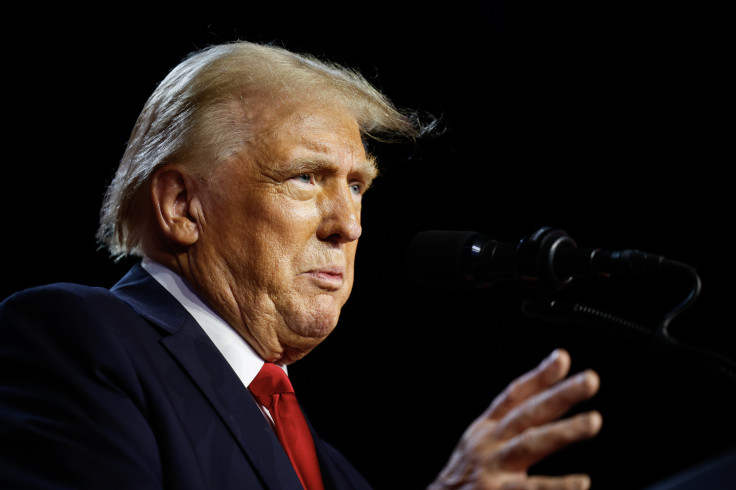
Throughout his campaign, President-elect Donald Trump vowed to fix the "migrant invasion," significantly reducing the number of migrants in the U.S. Now, with his move-in date to the White House just weeks away, the GOP leader is preparing to enact different sweeping strategies to tackle the flow of migration into the country.
People close to the Trump administration say many of his policies in Latin America will be a continuation, and a strengthening, from those enacted in his first term.
"There will be a lot of emphasis on controlling the border and working with Central American and South American countries to do so," Carlos Trujillo, who was an ambassador to the Organization of American States in the first Trump term said, in an interview.
He also explained that the administration will likely review many different options to achieve their goals of curbing migration.
"I think he's going to review whatever policies or opportunities help him accomplish that," said Trujillo. "Some of the options might be economic options. Some of the options might be blockade options. Some of the options might be direct diplomacy. There are multiple options."
During his first term, Trump was not shy of enacting sweeping policies to curb unauthorized migration. He threatened to cut hundreds of millions of dollars in aid to El Salvador, Guatemala and Honduras— the Northern Triangle— if they didn't stop their citizens from seeking asylum in the U.S.-Mexico border, NBC News reports. He also signed the Asylum Cooperative Agreements with the three countries allowing U.S. immigration officials to send asylum-seekers back to those countries before applying for refuge in the U.S.
Ahead of the new administration, Mexico might be the biggest loser, The Hill argues. The government of leftist Claudia Sheinbaum will have to review its relationship with its neighbor on immigration issues, drug-trafficking and trade.
They will also have to review the agenda on migration and drug trafficking. Earlier this year, the head of the Drug Enforcement Administration, Anne Milgram, revealed that antidrug cooperation from Mexico has been uneven and insufficient. Trump has been clear regarding the consequences if Mexico doesn't implement greater and consistent cooperation on migration and drug trafficking, according to The Hill.
Venezuela will also likely feel the effects of new Trump policies. During his time in office, he waged a campaign of "maximum pressure" against President Nicolas Maduro and backed opposition leader Juan Guaido in an effort to depose the authoritarian leader. But ahead of 2025, Trump may focus more on migration than trying to democratize the country.
"I think the policy is going to be focused— I don't think exclusively, but strongly— on curbing illegal migration, especially from Venezuela," Trujillo said.
One of Venezuela's top allies, Cuba, will also be in the spotlight, Trujillo said. Trump reversed many of Barack Obama's executive orders liberalizing trade and travel to Cuba, banning U.S. flights to most Cuban cities and limiting remittances. Just prior to leaving office, Trump designated a state sponsor of terrorism, Noticias Telemundo reports.
However, other countries in the region might gain some advantage as their leaders have shown alliance to Trump/ Salvadoran President Nayib Bukele, for instance, has a first-class relationship with the Republican Party, the conservative press and the presidential family. Similarly, Argentina President Javier Milei has expressed admiration for Trump, even planning on meeting with him in the next few days.
© 2025 Latin Times. All rights reserved. Do not reproduce without permission.




